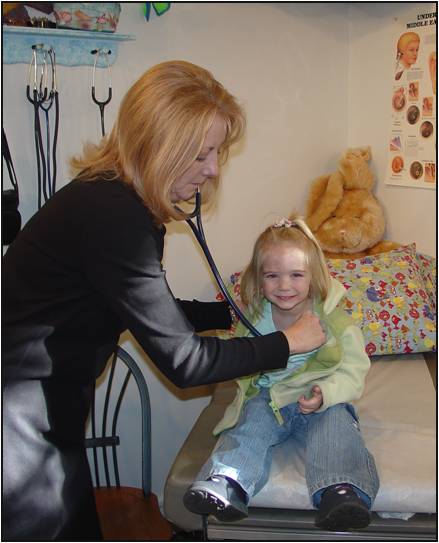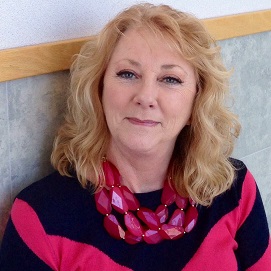After 20 years of working with abused and drug-endangered children, there are things Pediatric Nurse Practitioner Jeanlee Carver has seen that she wishes she could forget.
“You can’t imagine the things that adults do to children,” Carver says. “There are things in my head that I wish were not there.”
But still, she goes to work every day—40 years after starting her first job as a nurse at Intermountain Healthcare’s McKay-Dee Hospital in Ogden. Because there is always another child who needs help.
Carver will receive the Dare to Care award at the 23rd annual Honors for Nursing celebration May 12 at Little America Hotel. Along with Carver, about 200 Utah nurses will be recognized by their employers, co-workers, friends and family members for the work they do day-in and day-out to care for their patients.

Carver’s are just a little more vulnerable than most.
No one plans to dedicate their life to being the first healthcare provider to see a hurt child after someone burns them, hits them or, for example, stabs their head with a fork. For 66-year-old Carver, her life’s work followed a succession of seemingly routine choices. She never planned on the route her career would take her.
The youngest of four children growing up in Riverdale, Carver’s father was a truck driver. Her mother was a homemaker before she took a job at the Internal Revenue Service’s center in Ogden.
Carver graduated from Weber State University in 1978 with an associate’s degree in nursing. She took a job in McKay-Dee’s Intensive Care Unit, working as a critical care nurse for 15 years. In 1989, she earned her bachelor’s degree and started teaching emergency care and then forensics to paramedics and EMTs. In 1997, while she was pursuing a master’s degree with a specialty in adult primary care at the University of Utah, someone suggested she launch a Children’s Justice Center for Weber and Morgan counties. Rather than starting down the path of adult primary care, Carver started seeing children.
She’s never looked back, opening first a CJC program in Davis County, and then another in Cache County in 2004. Twenty years after she started as a nurse, Carver decided to take a path few willingly choose to travel—helping children understand the pain the adults in their lives cause.
“Children are full of love and life and they are forgiving and they are resilient,” she says. “You look them in the eye and tell them, ‘You are good. Grownups are not supposed to do this to you.’”
“You listen and you pay attention to them,” Carver adds. “I decided a long time ago that I could be the one adult in their life who listened to them, valued what they had to say, made them feel important.”
College of Nursing Assistant Professor Michelle Litchman, who worked with Carver in Weber County, nominated her for the Dare to Care award. “She’s driven by an intrinsic motivation to start the process of healing for these children,” Litchman says. “The Children’s Justice Center is that starting point, that initial stepping stone in getting to that point where you can actually move to a healing place, instead of a hurtful place.”
CJC nurses all work through Primary Children’s Medical Center, but are spread throughout the state, from Cedar City to Logan. In Ogden, Carver’s team—which includes police detectives, social workers and prosecutors—interviews 600 children, and about 2,500 family members, a year. Carver does more than 200medical exams a year. She’s one of a very few in the state who insists on performing medical exams or hair tests on drug-endangered children, says Rod Layton, Weber-Morgan Children’s Justice Center director. Most rely on the presence of smoke or fumes to prove drug endangerment, he says, but Carver takes the extra step.
She’s tenacious, Layton says, insisting on gathering as much evidence as she can to make the case when other team members are ready to move on. “She is extremely passionate about what she does, and she’s willing to stand up for that,” he says. “She says, ‘Our focus is on the victim first, our responsibility is to their wellness.’
“She won’t let us move on—not until after the medical exam. I don’t know what we’d do without her approach.”
